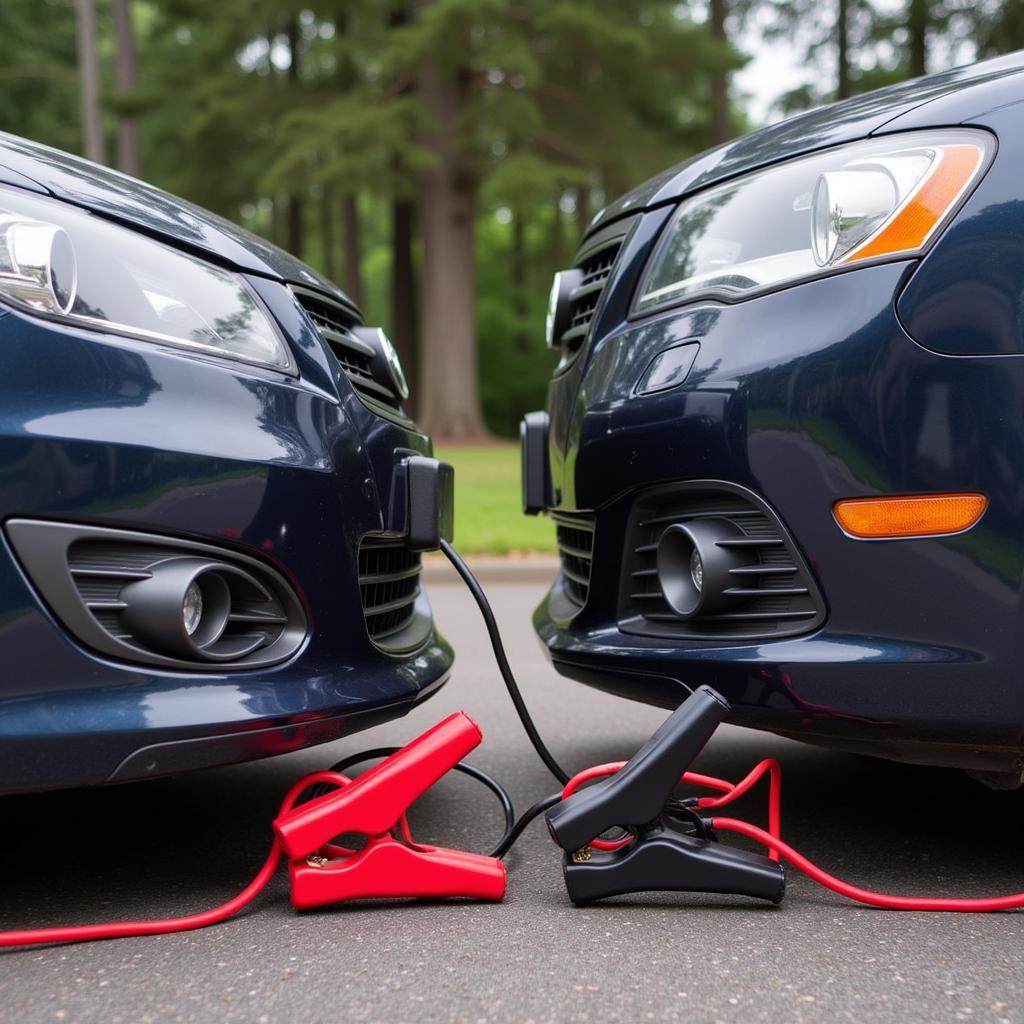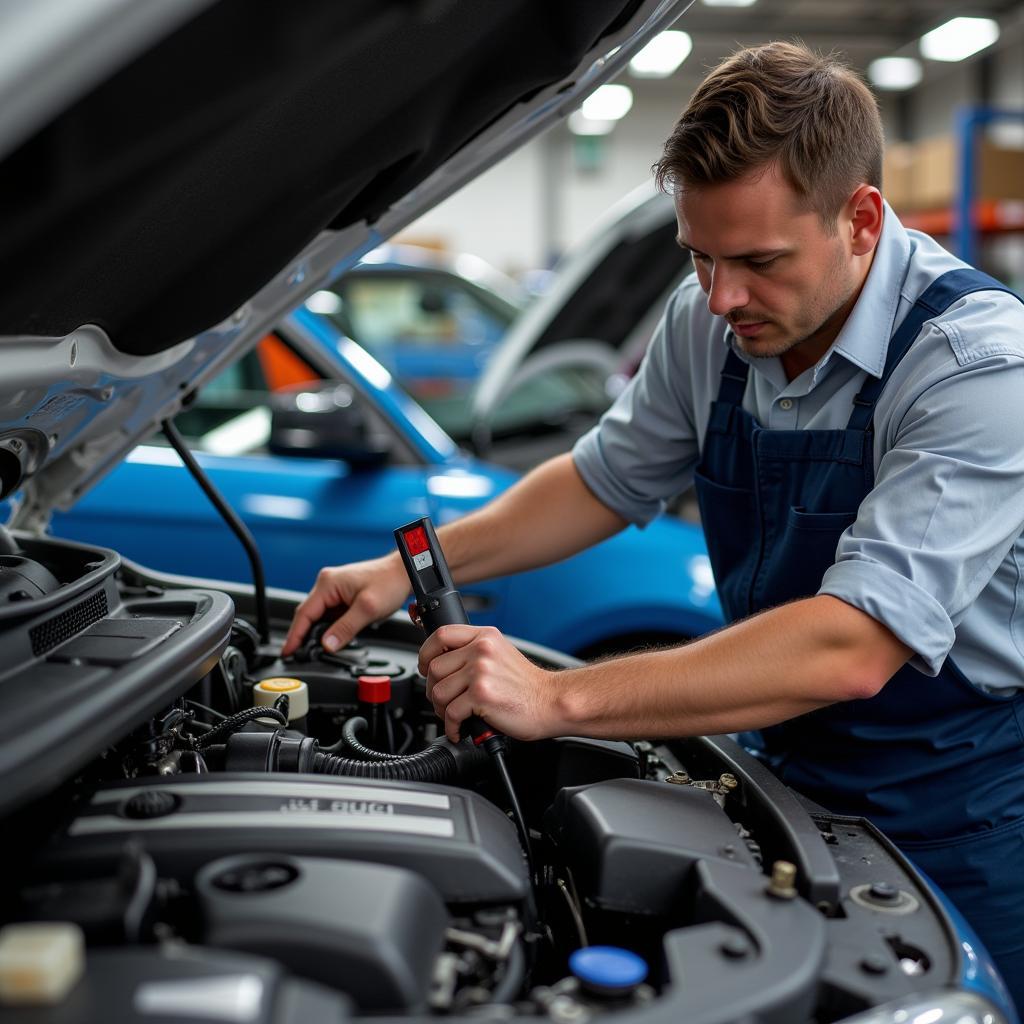Worried about “Skip College Car Problems”? Keeping your car running smoothly doesn’t require a mechanic’s degree or breaking the bank. This guide offers practical tips and advice on preventative maintenance and simple repairs, helping you avoid costly breakdowns and extend the life of your vehicle, even on a tight budget.
Why Preventative Maintenance is Key
Regular upkeep is the best way to skip college car problems and avoid unexpected expenses. Think of it like brushing your teeth – a little daily effort prevents major problems down the line. Neglecting basic maintenance can lead to more significant issues, requiring expensive repairs that could have been easily avoided.
Simple Checks You Can Do at Home
- Check Your Fluids Regularly: Oil, coolant, brake fluid, power steering fluid, and windshield washer fluid are essential for your car’s health. Learn where the reservoirs are located and how to check the levels. Top them off as needed.
- Inspect Your Tires: Properly inflated tires improve gas mileage and handling. Check the pressure regularly and look for signs of wear and tear.
- Test Your Lights: Make sure all your lights – headlights, taillights, brake lights, and turn signals – are working correctly. Replace burnt-out bulbs immediately.
Understanding Common Car Problems
Knowing a few basic car problems and their potential solutions can save you time and money. Many minor issues can be easily diagnosed and even fixed with simple tools.
Dealing with a Dead Battery
A dead battery is a common “skip college car problem”. Knowing how to jump-start your car is an invaluable skill. Keep jumper cables in your trunk and learn the proper procedure for connecting them. Remember, safety first!
- Step 1: Position the cars close enough for the cables to reach.
- Step 2: Connect the red cable to the positive (+) terminal of the dead battery.
- Step 3: Connect the other end of the red cable to the positive (+) terminal of the good battery.
- Step 4: Connect the black cable to the negative (-) terminal of the good battery.
- Step 5: Connect the other end of the black cable to a clean, unpainted metal surface on the car with the dead battery.
- Step 6: Start the car with the good battery, then try starting the car with the dead battery.
 Jump Starting a Car with Jumper Cables
Jump Starting a Car with Jumper Cables
What to Do If Your Car Overheats
Overheating can cause serious engine damage. If your temperature gauge climbs into the red, pull over immediately and turn off the engine. Do not attempt to open the radiator cap while the engine is hot! Wait for the engine to cool down completely before checking the coolant level.
“Regular maintenance is like an insurance policy for your car,” says John Davis, Lead Automotive Technician at AutoFix Pro. “It’s a small investment that can save you from major headaches and expenses in the long run.”
Budget-Friendly Repair Options
When repairs are inevitable, there are ways to minimize the costs. Learning to do some basic repairs yourself can save you a significant amount of money. There are numerous online resources and tutorials available.
Finding Affordable Parts
Don’t assume you have to buy brand new parts. Used or refurbished parts can be a cost-effective alternative, especially for older vehicles. Check local junkyards or online marketplaces.
“Don’t be afraid to get your hands dirty,” advises Sarah Miller, Automotive Engineer at CarTech Solutions. “Many simple repairs, like changing air filters or spark plugs, can be done at home with basic tools.”
Conclusion
Skipping college car problems is achievable with a little knowledge and effort. By prioritizing preventative maintenance, understanding common car issues, and exploring budget-friendly repair options, you can keep your car running smoothly without emptying your wallet. Need help? Connect with AutoTipPro at +1 (641) 206-8880 or visit our office at 500 N St Mary’s St, San Antonio, TX 78205, United States for expert advice and assistance.
 Mechanic Inspecting Car Engine
Mechanic Inspecting Car Engine
FAQ
- How often should I change my oil? Consult your owner’s manual for specific recommendations, but generally every 3,000-5,000 miles.
- What are the signs of a failing alternator? Dimming headlights, flickering dashboard lights, and difficulty starting the engine.
- How can I improve my gas mileage? Keep your tires properly inflated, avoid aggressive driving, and get regular tune-ups.
- What should I do if my check engine light comes on? Get your car diagnosed by a mechanic as soon as possible.
- How do I know if my brakes need to be replaced? Listen for squeaking or grinding noises, and feel for vibrations when braking.
- What is the purpose of a car’s catalytic converter? It reduces harmful emissions from the exhaust system.
- How can I prevent my car battery from dying? Avoid leaving lights on when the engine is off, and make sure the battery terminals are clean and tight.






Leave a Reply